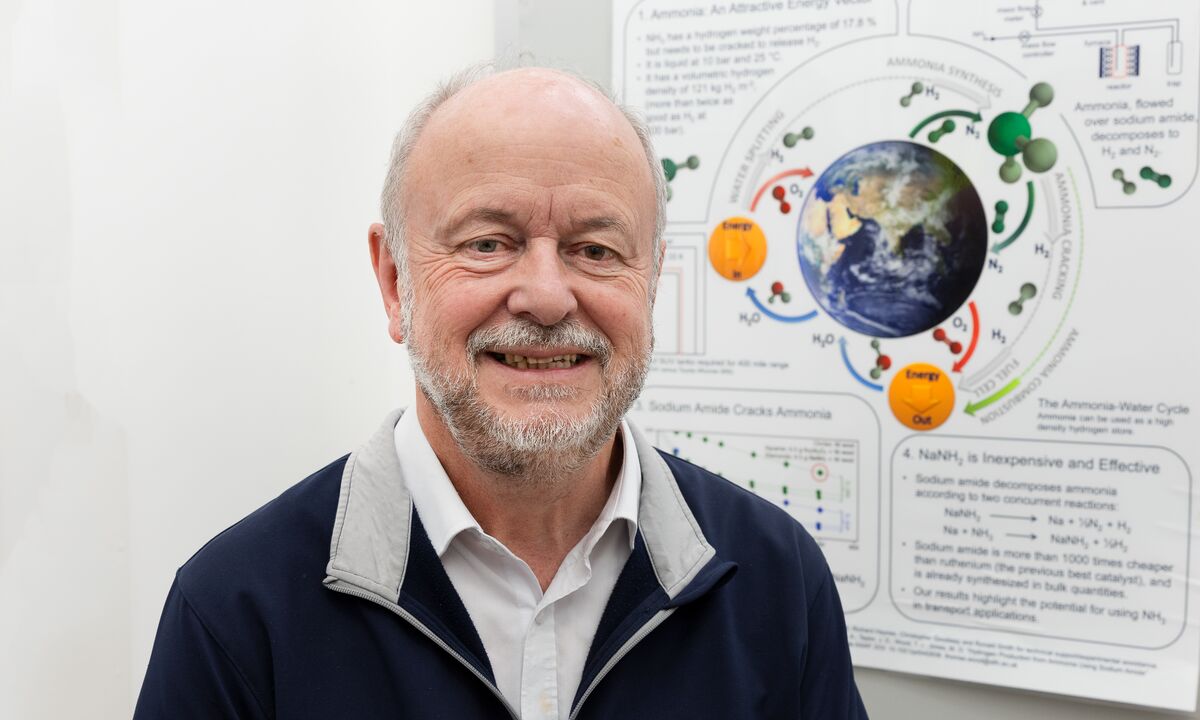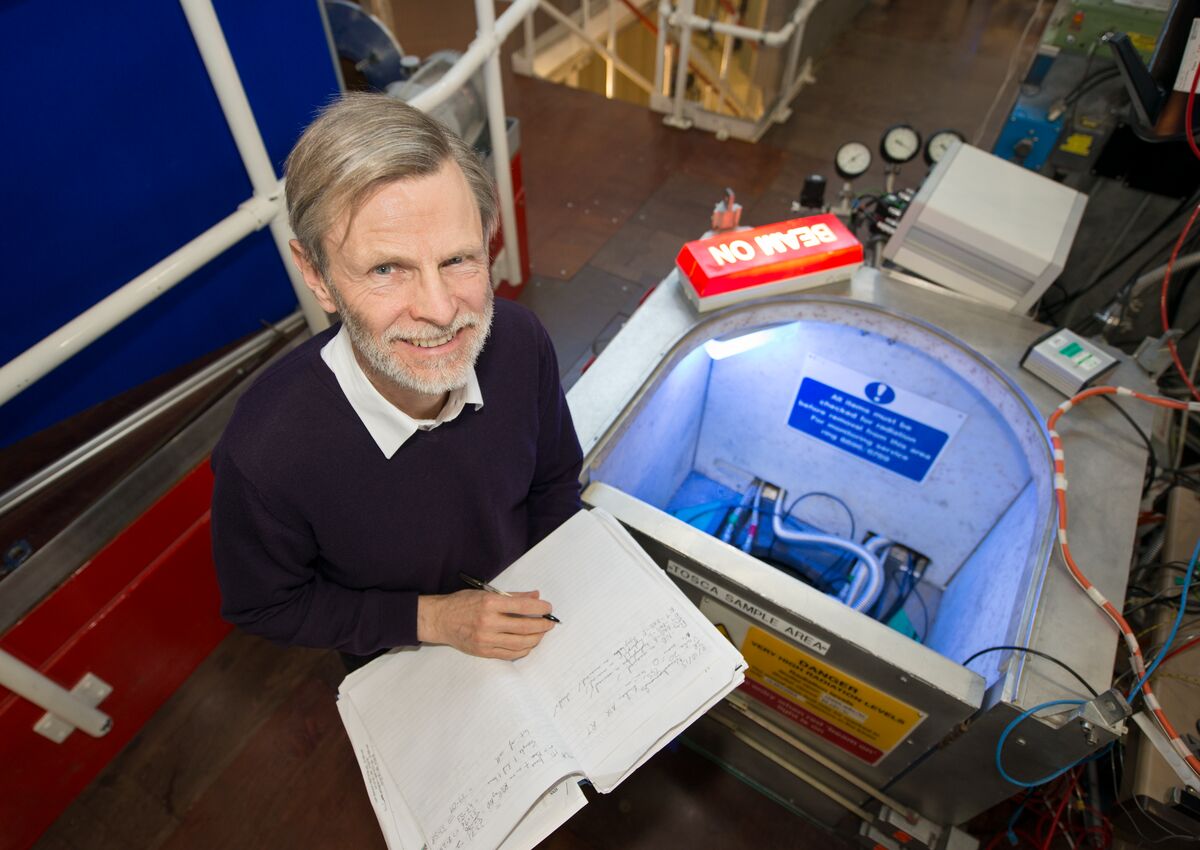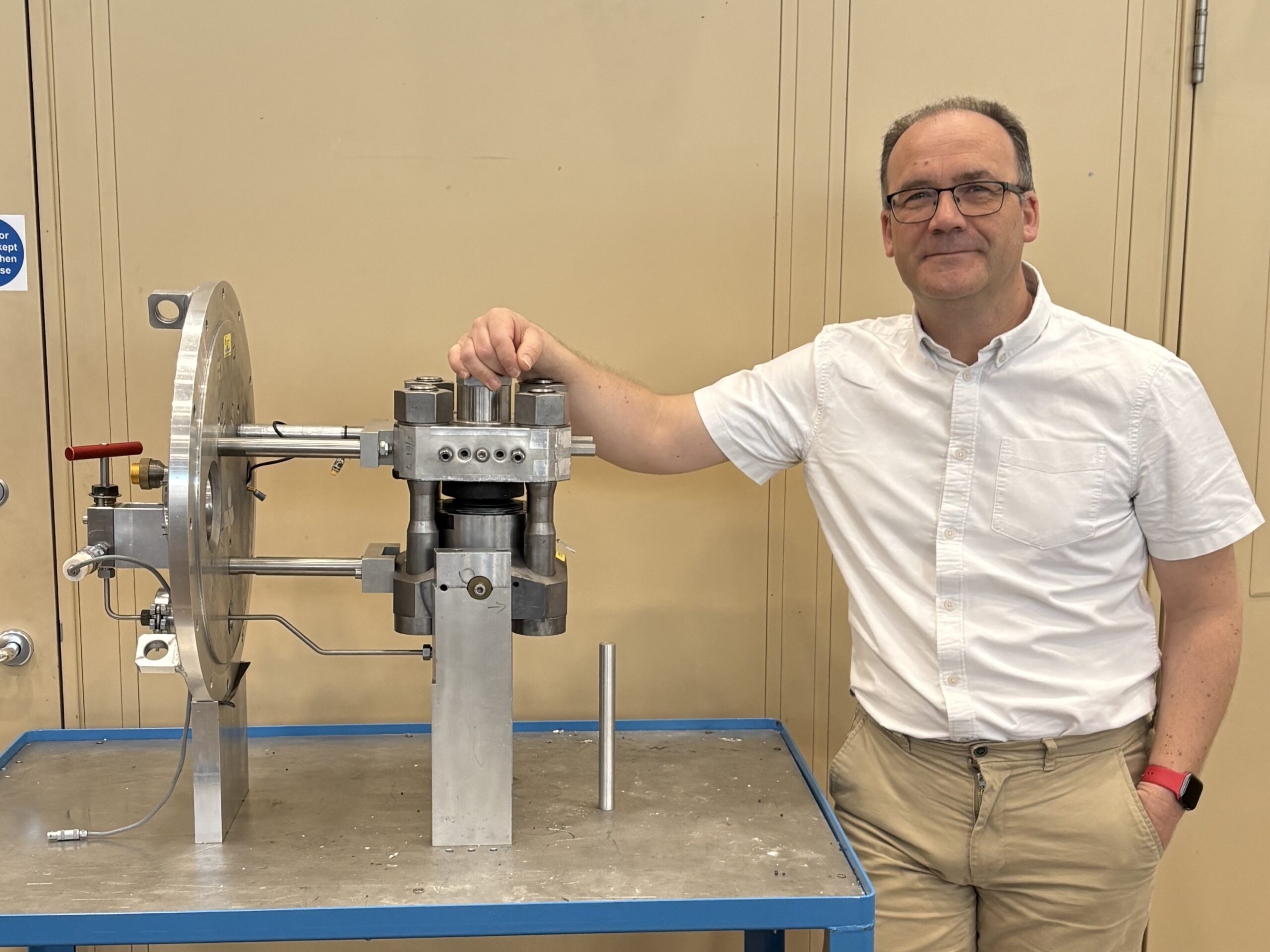ISIS colleagues recognised with prestigious UKRI Individual Merit Promotions
03 Apr 2025 - Stephanie Richardson
Many congratulations to Bill David, Stewart Parker and Craig Bull on their Individual Merit Promotions, which recognise their outstanding contributions to science and lasting impact in their respective fields.

Professor Bill David
Professor Bill David was promoted in January 2025 to UKRI Distinguished Fellow (Individual Merit Promotion Level 1) for his significant scientific contributions and outstanding global leadership and acclaim. Throughout his distinguished career, Bill’s work has provided valuable insights into important material systems, including high-temperature superconductors, pharmaceuticals and sustainable chemical and electrochemical energy storage compounds. The UKRI IMP panel recognised his pioneering developments in neutron and X-ray diffraction techniques, which, along with his theoretical and computational contributions, has transformed the field of crystallography.
Bill read Physics at St Catherine’s College at the University of Oxford, before completing his DPhil in Physics at the Clarendon Laboratory. He then moved to a postdoctoral position in the Inorganic Chemistry Laboratory with 2019 Nobel Laureate, Professor John Goodenough, where he took part in the earliest lithium battery research. In 1983, Bill joined the Rutherford Appleton Laboratory, where he played a key role in establishing the first diffraction facilities at ISIS.
Over the following years, Bill’s work was instrumental in advancing neutron and X-ray diffraction techniques, with notable contributions to research on the first high-temperature superconductor (YBa2Cu3O7) and Buckminsterfullerene (C60). Bill has also written a number of computer programs and packages that are recognised as transforming crystallographic analysis and data visualisation.
Bill was promoted to STFC Fellow in 1992 and STFC Senior Fellow at ISIS in 1997. In 2013, he was appointed to a joint position of Professor of Inorganic Chemistry in Oxford. His current research, in which he is an acclaimed UK and international expert, predominantly focusses on new materials and their use for sustainable energy applications, with a particular focus on ammonia as a zero-carbon alternative to fossils fuels and sodium-ion batteries as an additional option to their lithium-ion counterparts. Bill was elected to the Fellowship of the Royal Society in 2016 where he has made a number of significant contributions to their major policy programme on low carbon energy which considers how transformational science and technology can help the UK to transit to a low carbon future.
Looking ahead, Bill’s plan is to continue to drive and advocate for research, innovation and development aligned with the net-zero agenda and with a focus on zero-carbon fuels and energy storage for sectors such as shipping, aviation and agriculture. His particular 2030 challenge is for the Harwell Campus to be an exemplar for the integrated development of sustainable and affordable zero-carbon energy solutions at scale.

Professor Bill David
Dr Stewart Parker
Dr Stewart Parker was awarded Individual Merit Promotion Level 2 in March 2025 in recognition of his established leadership, international reputation and important contributions in the field of catalysis. The UKRI IMP panel were enormously impressed with the originality of Stewart’s work, his ability to drive innovation and his collaborative approach, particularly in cultivating long-term partnerships with both industry and academic institutions globally. They also praised his dedication to mentoring and supporting early-stage researchers, and his commitment to driving research excellence at ISIS.
Stewart joined ISIS in 1993, following a PhD at the University of California, Santa Barbara, a postdoctoral position at the University of East Anglia, and eight years at the BP Research Centre in Sunbury-on-Thames. He started as an instrument scientist on TFXA and was later involved in the design and build of its successor, TOSCA, which began operation in 2000.
Stewart is an expert in catalysis and vibrational spectroscopy and was one of the founder members of the UK Catalysis Hub at the Research Complex at Harwell, of which he is still an active member. Stewart has longstanding collaborations in the UK, Europe and the USA and long-term industry collaborations with Evonik Industries and Johnson Matthey plc. He has published over 460 papers and co-authored a book on inelastic neutron scattering. He has mentored and supervised students at all stages of their careers – from 17-year-olds carrying out work experience, to PhDs, to post-doctoral researchers. Three of these now have academic positions, and another is an instrument scientist at ISIS. He is particularly proud that six of the work experience students have co-authored papers with him, and one student was featured on the Royal Society blog.
Since 2023, Stewart has led the Molecular Spectroscopy Group at ISIS. He holds a visiting professorship at the University of Glasgow and was awarded the Norman Sheppard prize for Vibrational Spectroscopy in 2021.
Looking ahead, Stewart’s research is centred around two PhD projects. One project is an ISIS Facility Development studentship with Arun Chutia at the University of Lincoln to use neutron vibrational spectroscopy and computational studies to understand how hydrogen is used to make methanol. The other is a Johnson Matthey plc sponsored iCASE award with David Lennon at the University of Glasgow to explore how neutron imaging can be used to watch a chemical process happening inside a reactor in real time. As group leader, he is looking forward to the completion of transformative upgrades to VESUVIO, OSIRIS and TOSCA. Further ahead, SHERPA, a replacement for IRIS, is set to transform quasielastic neutron scattering.

Dr Stewart Parker
Professor Craig Bull
Professor Craig Bull was awarded Individual Merit Promotion Level 3 in March 2025 for his significant contributions to high-pressure chemistry, spanning both fundamental and applied research. The UKRI IMP panel recognised Craig as a leading expert and a key figure in high-pressure chemistry in the UK, with a strong international reputation. They also commended Craig for his passion for his work, his innovation and expertise, his dedication to mentoring young researchers and his efforts to promote the use of the ISIS facility.
Craig obtained his PhD under the supervision of Professor Richard Catlow at the Davy Faraday Research Laboratory (Royal Institution of Great Britain, London). He then worked as a postdoctoral fellow at University College London before joining Professor Richard Nelmes at the University of Edinburgh, where he was based at the ISIS Neutron and Muon Source, developing an understanding of fundamental materials behaviour under high pressure.
In 2013, he was appointed instrument scientist on the PEARL instrument and later became group leader of the Crystallography Group at ISIS. He is also a visiting Professor at the School of Chemistry, University of Edinburgh.
As part of his role at ISIS, Craig has pursued his interest in understanding the structure–property relationships of solid-state materials under extreme pressure and temperature, spanning a wide range of fundamental and applied scientific fields.
In the coming years, he will continue pushing the limits of pressure and temperature at which neutron scattering measurements can be performed. In particular, he will focus on studying novel oxides beyond their stability field whilst further strengthening collaborations with industry and academic institutions to discover and explore new materials at extreme conditions.

Professor Craig Bull
The UKRI Individual Merit Promotion (IMP) scheme recognises researchers who have made, and who will continue to make, an outstanding personal contribution in their field, and who have an excellent track record in research or the development of new techniques or instrumentation.
For more information about the scheme, visit the UKRI website.

